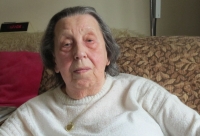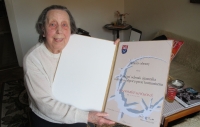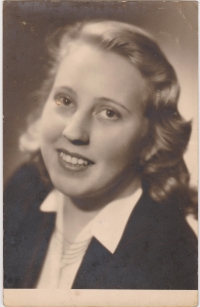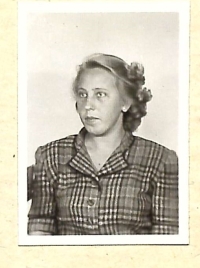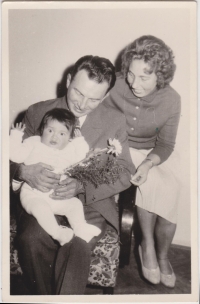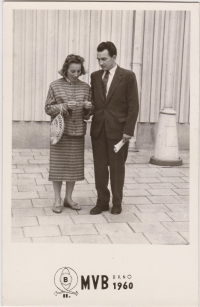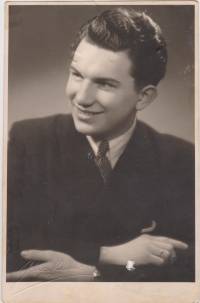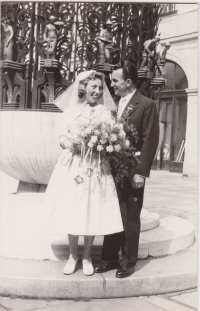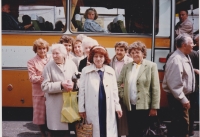Contacted by her friend Karel Vrbický, serving the French intelligence at the time
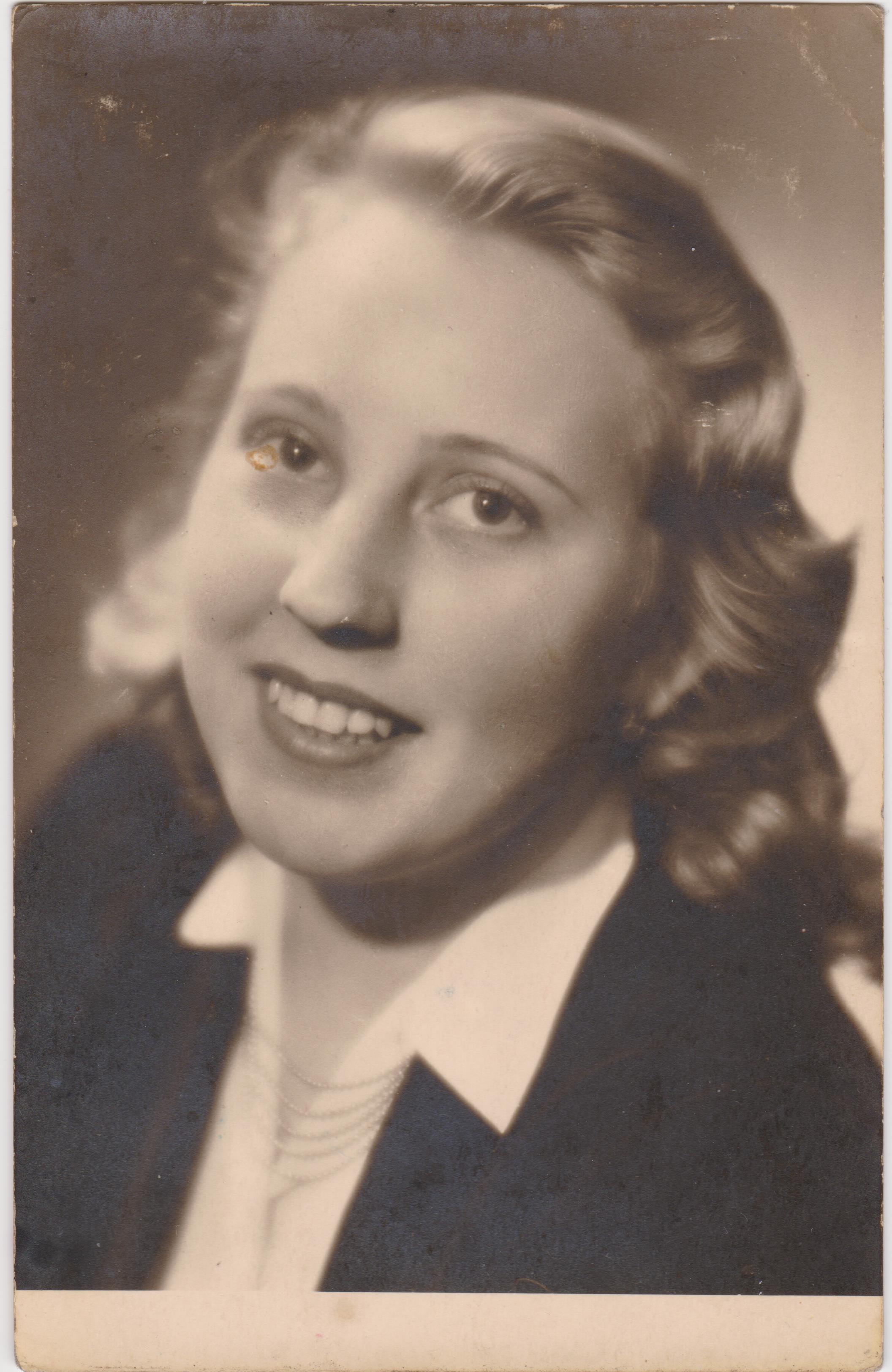
Download image
Drahomíra Krčková, née Komárková, was born in Brno-Židenice on 26 March 1929. Her father Alois was a slaughterhouse wholesaler and her mother a housewife. She had a brother who was sixteen years younger. Completing her primary school and piano studies at the Brno Conservatory, she started working at a Masna n. p. office. A member of the National Socialist Youth from 1945, she actively promoted the National Socalist pre-election propaganda in 1946. After February 1948, her father’s wholesale business was nationalised and the family lived on savings until her father found a job as a slaughterhouse worker. The family’s difficult situation and the ban on National Socialist youth shaped her decision to take part in anti-communist activities. When her friend Karel Vrbický, then in the service of French intelligence, contacted her from Western exile, she began to pass on various information to the agents sent to her, for example about drilling in the Moravian oil fields. She was exposed through a planted StB agent and arrested on 7 June 1950 at work. She was held in a detention centre in Brno’s Orlí Street and taken to Příční Street for brutal interrogations. During the questioning, she lost two of her front teeth, was beaten with a stick on bare feet, and an informer was planted in her cell. She spent the next six months of detention in Cejl Prison, knitting cuffs for the Darex luxury goods shop, the forerunner of Tuzex. On 9 April 1951, Drahomíra Krčková was sentenced to 12 years’ imprisonment by the State Court in Brno for espionage and unauthorised contact with foreign countries. Three other members of the Vrbický Group were tried together with her. Krčková went through prisons in Stará Role where she worked in a porcelain factory, in Poděbrady in glassworks and in Pardubice as a seamstress. Her mother died in 1953, but Drahomíra was not allowed to attend the funeral. She did not gain her freedom until half of her sentence had expired on 27 July 1956, following repeated requests from her father. After returning from prison, she was unable to find a job for a long time. Finally, she succeeded with the Brno public transport where she was hired as a bus conductor. She married Radek Krček, an acquaintance from before her arrest and also a former political prisoner in 1960. A disabled daughter was born, so Drahomíra Krčková never returned to work. After the collapse of communism, she received an award as a participant in the anti-communist resistance.
